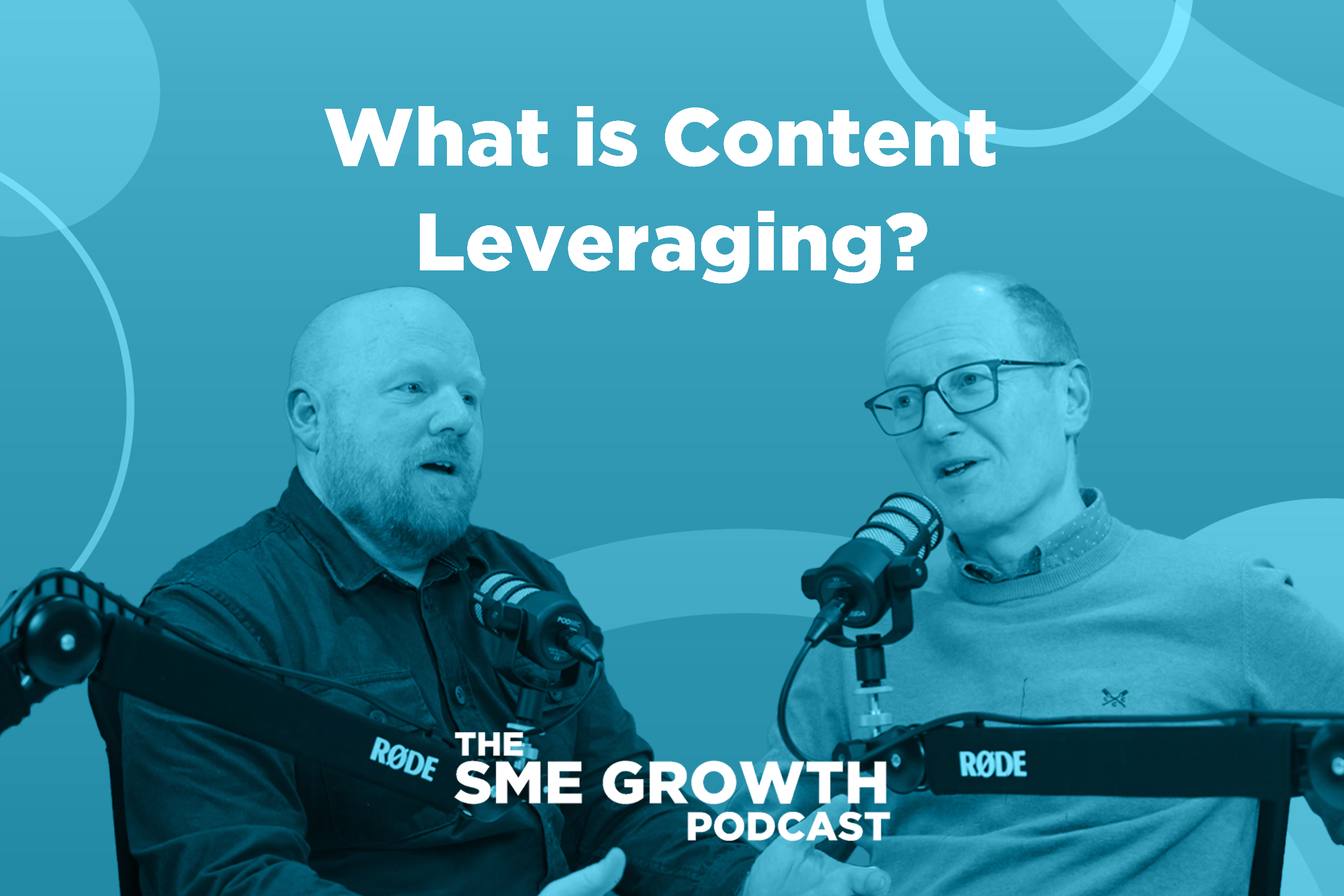Episode 08: Content Audits for SMEs
In this episode of The SME Growth Podcast, Dave Parry and Richard Buckle discuss the importance of SMEs completing a content audit. Covering the...
Wellmeadow supports ambitious companies with business growth enabled by HubSpot.
We've worked with over 100+ businesses at board-level across sectors such as automotive, manufacturing, healthcare, legal, SaaS, and professional services.

%20(A4).png?width=71&height=100&name=portrait%206-box%20model%20diagram%20(1170%20x%207051%20px)%20(A4).png)

-1.png?width=70&height=70&name=Square%20(1)-1.png)

Want to create content but not sure where to start? Wellmeadow's approach can help you develop a process that saves time, captures your expertise, and generates a load of value-added content for your business.
When we talk about content (or more specifically marketing content), we are referring to the marketing materials you use to attract, engage, and nurture your leads.
In a world where "Attention" is one of the most highly-prized commodities, you need compelling content, and lots of it, to stand out from the crowd.
This means you need content that adds value to your audience. Content that educates, engages, and entertains them (not necessarily in that order).
I know we're just getting to know each other but here's some tough love. Most people who come across your website don't really care about your company's latest award, new hire, or charity walk. They have an issue that needs to be solved and they are looking for you to help them.
If you can produce content that adds value to your target customers, they are more likely to find it and engage with it.
Engagement leads to trust, and trust builds relationships that converts prospects to customers.
We live in an age where consumers are more savvy than ever and trust in organisations is diminishing. Your marketing content is one of the primary ways in which you can establish trust and credibility with your target audience.
Businesses looking to grow need a repeatable and scalable model to attract potential customers into their eco-system. Having content that attracts your target audience, whether that's technical eBooks or Tik Tok videos, is mission critical to lead generation.
Many B2B companies have a sales cycle that could last weeks or months. Therefore, once you've attracted a lead, you need content to keep them engaged and nurtured as they move through the funnel. Think about creating content that is relevant to where your leads are in their buyer journey. This helps marketing and sales teams fulfil their respective roles in converting leads to customers.
The data speaks for itself:
There has been a 207% increase in content usage since the pandemic with 62% of those making B2B decisions saying they relied on practical content like case studies and visual content. (Source: mediafly)
90% of B2B buyers say they turn to online channels as their primary method for identifying new suppliers. (Source: kurve)
67% of B2B buyers start their purchase journey online. (Source: kurve)
Content marketing typically generates three times more leads than outbound marketing. (Source: CMI)
B2B buyers engage with 3-7 pieces of content before talking to a sales rep and 90% research 2-7 websites first. (Source: kurve)
Content marketing cost 62% less than to generate the same number of leads than outbound marketing. (Source: CMI)
Over the years, we've come across quite a few reasons why business struggle to develop compelling content. Here are the top three things we come across when we are asked to help clients create content.
Typically this is a fear of the unknown, a hesitancy about where/how to start, or the classic fear of failure. Here's the thing - some of your content will be rubbish and it won't work. So what?! The more you do, the better you get. Once you start making content, you can use the data to inform you as to what is/isn't working.
Most business owners feel like they don't have the time to spend hours creating content for all the different channels and audiences. They also worry that they could spend hours making content that nobody is going to engage with (I refer you to point 1).
Businesses that take an ad-hoc approach to marketing don't build in the systems and process that enable them to make effective content in an efficient manner. This reinforces the "I'm too busy" mindset (see point 2) which results in an increasingly ad-hoc approach. Typically, marketing happens when the leads or the cash dries up by which time it could be too late. If this sounds, familiar, read on...
.png?width=1920&height=1080&name=Wellmeadow_Introduction%20to%20Content%20Leveraging%20(3).png)
The most common responses we hear when we speak to business about creating content is that they don't have the time to make it. Even if they did have the time, there is a perceived issue that no-one else can tell their story or convey their message in the right tone. Plus, no-one wants to have spend ages educating an agency on what they do - time is money...
As a business owner or senior executive, your time is valuable. With our content leveraging approach, we put in the hard yards in terms of the preparation and production. We just need an hour or so of your time to get the content out of your head!
That's why we have developed a process where we can unlock the expertise in your business with minimal time (typically 1 hour) and create great looking content (usually about 100 pieces).
The process is not just about creating content to make your business look good (although we like to think we do that). Its very much focussed on creating marketing material that adds value to you target audience and drives lead generation.
To recap, the benefits of the content leveraging approach are:
It saves loads of time
It generates 3-6 months worth of lead generating content (typically 100+pieces of content such as eBooks, reels, shorts, social media, email)
It captures insights from experts within your business with minimal fuss.
Our process involves four key stages to help plan, capture, produce, and distribute your content. We are giving you the process steps below so you can give it a go in your own business.
Identify your target buyer personas for the content.
Plan out the content strategy.
Develop a list of information you to produce the content need to know and turn them into questions.
Plan out when, where and how you're are going to shoot your content.
Shoot the content. The more time you spend planning, the better this stage of the process will flow. Remember to think about b-roll you can capture with your experts to help enhance the final videos.
Use the video content created and break it down into video, audio and a transcript.
Use these content to create eBooks, YouTube Shorts, Instagram Reels, plus other social media and LinkedIn content.
Create the web/online infrastructure for your campaign (e.g. Landing pages, forms, emails, workflows). Using a tools like HubSpot can really help you automate a lot of these processes.
Distribute your content across all of the relevant marketing channels.
This drives traffic to your landing page(s) containing a content offer (such as an e-book). Web visitors can access the content in exchange for an email address.
Design more content to nurture your leads until they are ready to make a purchase.
In this episode of The SME Growth Podcast, Dave Parry and Richard Buckle discuss the concept of content leveraging. Focussing on creating content in both quality and quantity so an SME gets the most benefit from time invested into creating content. They also discuss the concept of TikTokification and the need of shortform content in your content strategy.
Also available to listen on Apple Podcast, and click here for all other available platforms.

In this episode of The SME Growth Podcast, Dave Parry and Richard Buckle discuss the importance of SMEs completing a content audit. Covering the...
-1.jpeg)
In this blog, we’ll be addressing content strategy for inbound marketing, an integral pillar of the philosophy. So keep reading if you want to know...

Want to conduct a content audit but don’t know where to begin?